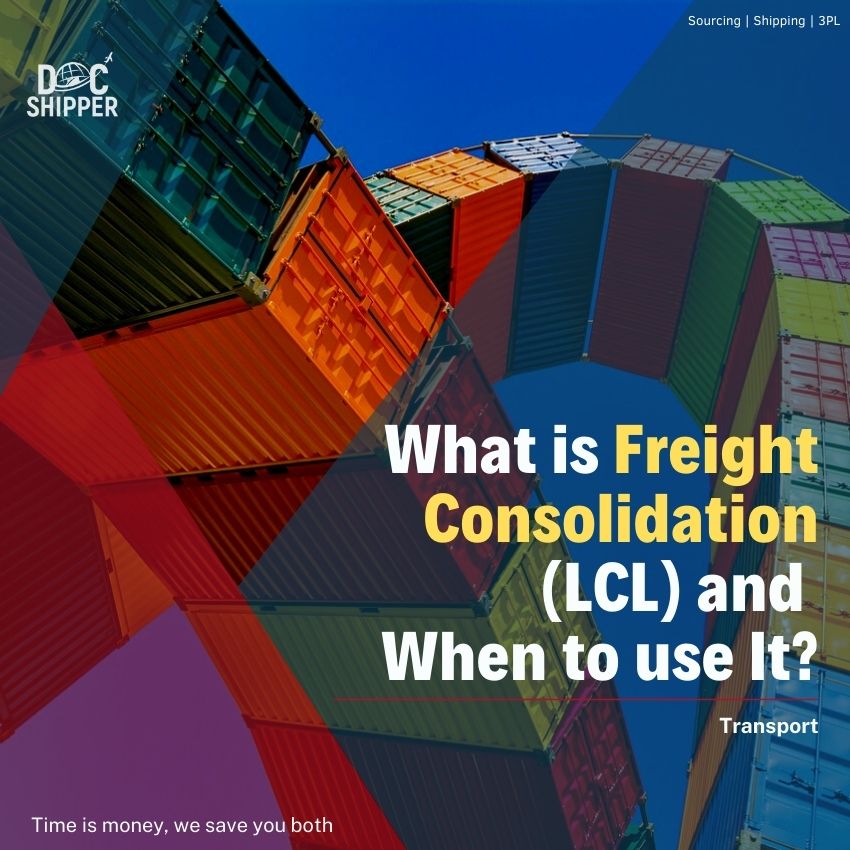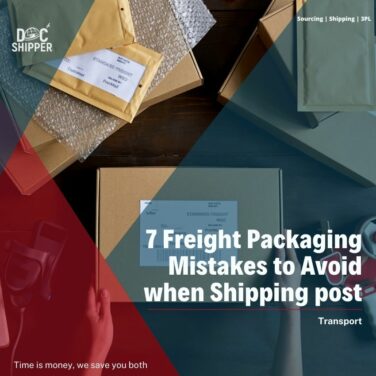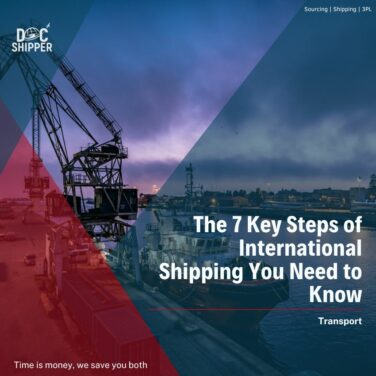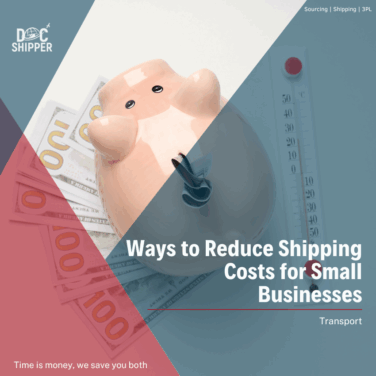“Consolidation”, “grouping of goods” or “LCL” refers to the process of reorganizing and grouping products in warehouses in order to unify storage and transportation management. Given that it enables companies to cut costs and boost efficiency, it is a practice that is commonly used in the logistics sector.
Less than a Container Load in the transportation industry is the practice of combining the goods of multiple customers onto a single truck (or container, in the case of maritime or intermodal transport) in order to avoid using a container that is only partially filled to convey the goods of a single customer. Freight consolidation is used at the warehouse during the receiving, storing, picking, and shipping of goods. Our experts provide you with more information in this article:
FNM Vietnam Tip
INFO FNM : Banner: FNM Vietnam is an international freight forwarder that organizes the transport of goods all over the world. Our experts are at your disposal to answer all your questions regarding freight and consolidation at info@docshipper.com. And if you want to receive a free quote in less than a day, you can fill out this quick form.
When should you use freight consolidation?
The freight grouping varies widely among the various logistics management areas, but the basic concept remains the same:
When transporting products in groups
A truckload is when one customer’s shipment completely fills a truck or container.
Less-than-truckload: One truck or container holds the cargoes of numerous different clients. These include groupage and courier services. Goods consolidation makes long-distance shipments more affordable for small businesses. Typically, these businesses don’t produce enough of their goods to fill a truck or container to capacity.
Carriers carry goods for multiple customers at once through load consolidation, giving smaller businesses the chance to meet considerably cheaper shipping prices. You simply pay for the amount of space your products take up in the transport unit when you consolidate your logistics. Additionally, it enables the carrier to make more deliveries, improving the ultimate service’s speed and efficiency in addition to its affordability.
However, compared to full loads, the pickup and delivery timetables for this kind of transport are less exact. In fact, groupage requires the carrier to make two trips: one to load the items for its clients and another to deliver them to each recipient. Due to this workflow, groupage carriers’ time slots are more speculative; full truckload load (FTL), which follows fixed routes from point A to point B, is typically more precise regarding delivery and pickup timings.
FNM Vietnam Info
Tips FNM : Want to know the difference between FTL and LTL? We have prepared an article on the topic: Trucking Services: Difference Between FTL and LTL
The process of consolidating goods in the warehouse
The concept of goods consolidation is not exclusive to the transportation industry. In warehouses, particularly in logistics platforms, it is crucial. Here, we combine products from diverse sources in order to maximize storage and raise client pleasure.
When a business chooses where to locate its warehouse, it takes into account its distribution system and the potential for load consolidation. The foundation of urban logistics platforms is this idea. Additionally, it is crucial to emphasize the significance of logistics consolidation in cross-docking operations.
Stock consolidation in warehouses involves assembling comparable items from several locations. It is employed when:
When incoming stock is divided and processed in order to be integrated into single unit loads, this is the goods receiving process.
Addressing: Logistics grouping gives you the flexibility to transfer stocks around to maximize storage space. Stocks can be moved from one location or container to another.
Pre-shipment operations: on the one hand, it is feasible to combine the contents of multiple containers to move forward with a group shipment; on the other hand, orders can be grouped based on their delivery location or the customer since they typically take up the same transport space.
FNM Vietnam Info
Astuce FNM : The quantity of goods you wish to transport not enough to fill a full container? No problem, because it is possible to consolidate your products with other entrepreneurs like you in order to reduce your costs. FNM can organize the whole procedure for you, just fill out this form to receive a free quote.
What are the benefits of freight consolidation?
Following an evaluation of freight consolidation’s features in the logistics industry for shipping and warehousing, the advantages it brings companies are as follows:
Reduced operational costs: By aggregating loads, businesses can split the cost of transportation and storage. Companies that are unable to transport a sufficient amount of goods themselves might take advantage of this chance and pay for only the services they require.
Possibility of enhancing the quality of their service: Grouping of items in transportation opens a variety of opportunities for businesses, resulting in a rise in shipment frequency and a more comprehensive range of routes. Logistics operations are made more adaptable by bringing together businesses with similar goals.
Capacity optimization: By removing waste and packing vehicles, containers, warehouses, and logistics platforms to the brim, condensing commodities increases storage space.
DocShipper will help you consolidate and ship your cargo
To ensure that your international shipment runs smoothly, it is important to use a freight forwarder. Indeed, the customs procedures and the multiple contacts with the transport company can be time-consuming and make you lose money if you are not used to it.
To help you, DocShipper can take care of the entire process of transporting goods from the warehouse to loading, customs clearance, transportation, and final delivery to your customers. During all stages, we will be your single point of contact. To receive a quote in less than 24 hours, please fill out the following form: https://fnm-vietnam.com/contact/
FAQ | What is Freight Consolidation (LCL) and When to use It?
Read more
Looking for more? These articles might interest you:
DocShipper info: Did you like this article? You may also like the following:
Need Help with Logistics
or Sourcing in Vietnam ?
First, we secure the right products from the right suppliers at the right price by managing the sourcing process from start to finish. Then, we simplify your shipping experience - from pickup to final delivery - ensuring any product, anywhere, is delivered at highly competitive prices.

Fill the Form
Prefer email? Send us your inquiry, and we’ll get back to you as soon as possible.
Contact us




